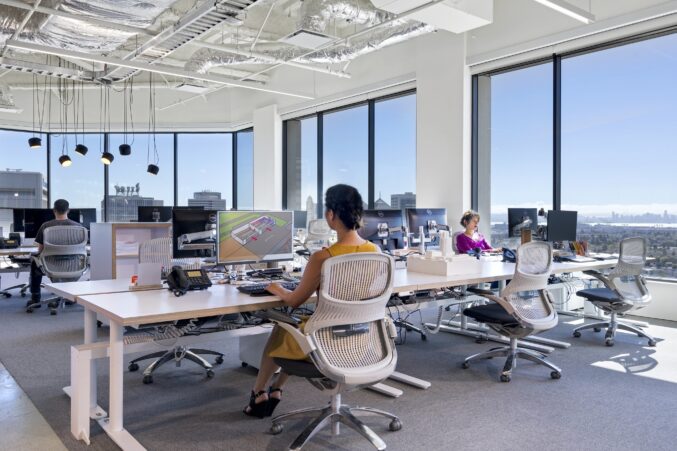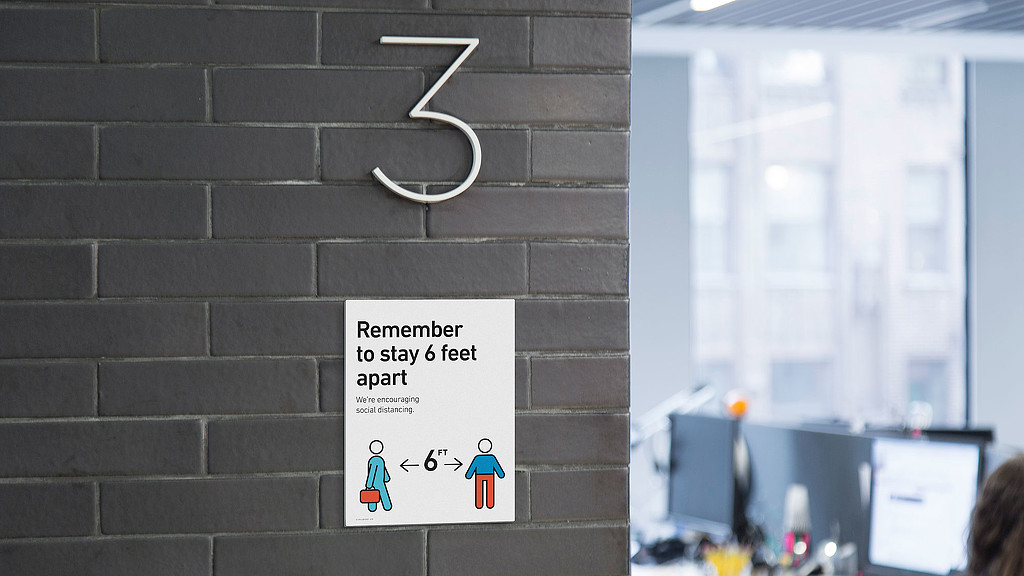A recent study from global architecture, design, and planning firm Gensler suggests that working from home full-time is preferred by some, but most would choose to return to the office.
Kelly Moore, Gensler strategy director and south-central regional area practice leader for consulting, told D CEO, “For the majority, we’re all working from home five days a week, so when we start to ask ourselves, ‘Does everyone want to continue that way?’ the answer is, ‘Not even close.’”
Here’s the bottom line: 44 percent do not want to work from home, 44 percent would embrace a flexible combination of office work and work from home, and just 12 percent would choose to continue to work from home full-time.
The survey gauged responses from more than 2,300 full-time U.S. workers at companies of 100 or more people evenly distributed among 10 industries including tech, management/advisory, media, science, finance, energy, consumer goods, government/defense, legal, and nonprofit.
The most important reason workers want to return to the office is the fellowship and collaboration opportunities with co-workers. Seventy-four percent of respondents said, “the people” are what they miss most about the office.
“The workplace is all about connection,” Moore said. “We aren’t getting the impromptu kind of ‘water cooler’ time. Workers want scheduled meetings with colleagues face-to-face. We can certainly socialize over the phone in our virtual world, but there’s something very different about it when it’s in that face-to-face atmosphere.”

Younger Generations Challenged Most
The transition to the work-from-home environment has been a challenge for employees in every industry and on all workers, but it seems younger generations are struggling most.
The biggest challenge is the ability to focus; 50 percent of Millennial/Gen Z respondents said avoiding distractions is more difficult at home than in the office, whereas 41 percent of Gen X and 33 percent of Boomers report the same.
Boomers and Gen X also feel they have accomplished more at the end of the day than Millennial/Gen Z workers, and the older workers also feel they have made more of difference at the end of a typical day as opposed to the younger workers.
“People probably thought the older generation might have challenges with technology, but when you start to think about the older worker generations, they are typically pretty well established in their career,” Moore told D CEO. “And so, the younger generation carries more stress in terms of not knowing at the end of the day if they’ve done all their tasks or completed everything they need to do.”
Reimagining
There are still many questions about the future of office space demand. Offices certainly aren’t going away, but it’s about finding the purpose of the office space. With 44 percent of respondents open to working from home for a portion of the week, it begs the question: How do businesses handle a surplus of office space if it’s no longer needed?
“First, we need to figure out who is coming into the office and why they are coming into the office,” Moore said. “Once we figure out the ‘why,’ that will allow us to understand how we change the office.”
Businesses understand the need for change, but the most necessary alteration is a shift in safety measures. For people to feel comfortable returning to the office, a combination of more space, more cleaning, and stricter sick policies is required.
Fifty-five percent of workers rank stricter policies against coming in sick as vital to them being comfortable returning to the office, and 50 percent rank increased office cleaning as crucial to them.
So, what’s likely? Cleanliness will improve, office space will taper in volume, and workers will remain at home. But the full equation of the future of office space is still unsolved.
What that means, though, is that we have an opportunity to create a better future, Moore said: “People are so focused on getting back into the office, but we can actually take what’s happening right now as an opportunity to reimagine the future of the workplace.”





